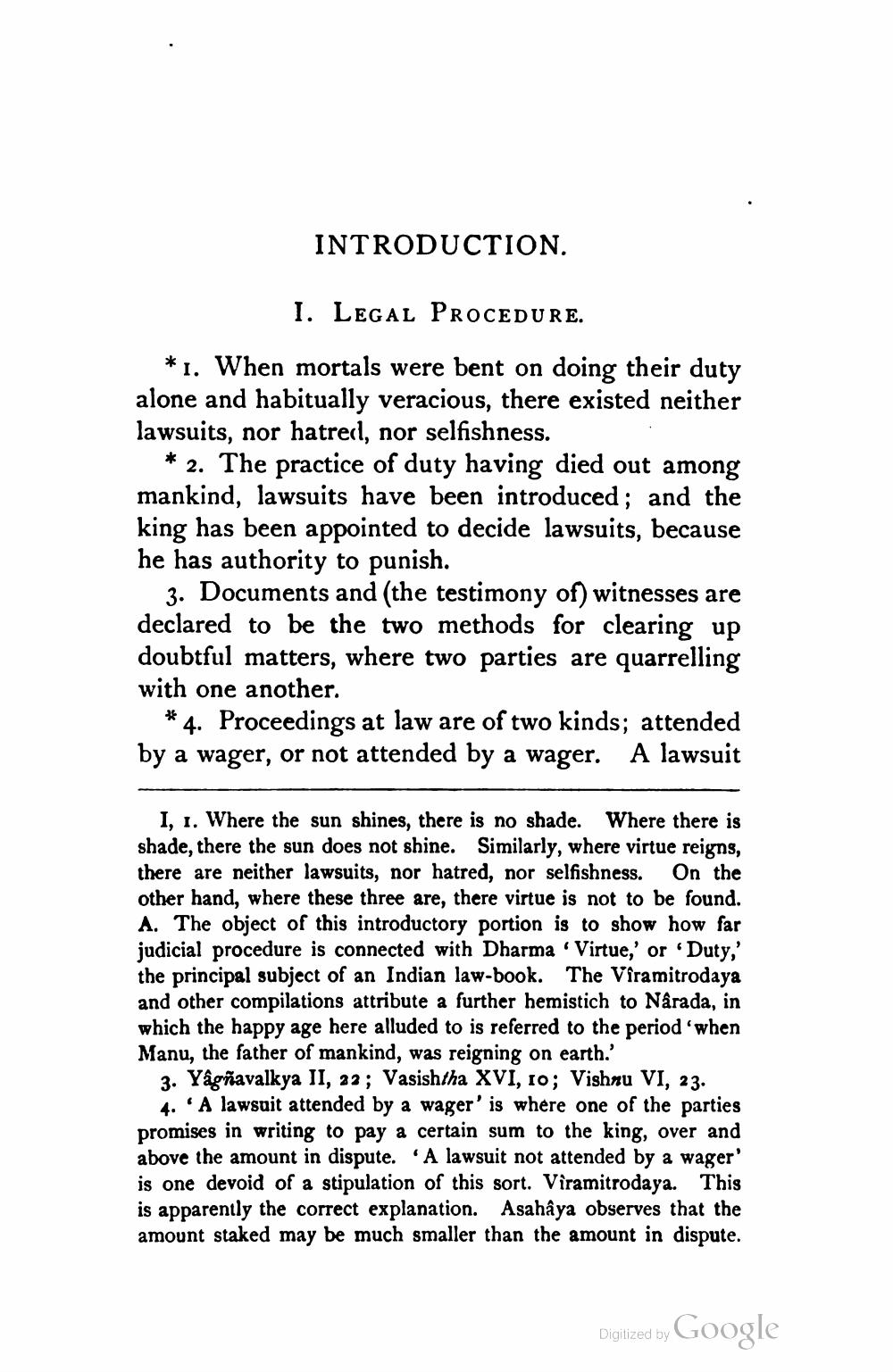________________
INTRODUCTION.
I. LEGAL PROCEDURE.
* 1. When mortals were bent on doing their duty alone and habitually veracious, there existed neither lawsuits, nor hatred, nor selfishness.
* 2. The practice of duty having died out among mankind, lawsuits have been introduced; and the king has been appointed to decide lawsuits, because he has authority to punish.
3. Documents and (the testimony of) witnesses are declared to be the two methods for clearing up doubtful matters, where two parties are quarrelling with one another.
4. Proceedings at law are of two kinds; attended by a wager, or not attended by a wager. A lawsuit
I, 1. Where the sun shines, there is no shade. Where there is shade, there the sun does not shine. Similarly, where virtue reigns, there are neither lawsuits, nor hatred, nor selfishness. On the other hand, where these three are, there virtue is not to be found. A. The object of this introductory portion is to show how far judicial procedure is connected with Dharma 'Virtue,' or 'Duty,' the principal subject of an Indian law-book. The Viramitrodaya and other compilations attribute a further hemistich to Nârada, in which the happy age here alluded to is referred to the period 'when Manu, the father of mankind, was reigning on earth.'
3. Yâgñavalkya II, 22; Vasishtha XVI, 10; Vishnu VI, 23. 4. A lawsuit attended by a wager' is where one of the parties promises in writing to pay a certain sum to the king, over and above the amount in dispute. A lawsuit not attended by a wager' is one devoid of a stipulation of this sort. Viramitrodaya. This is apparently the correct explanation. Asahâya observes that the amount staked may be much smaller than the amount in dispute.
Digitized by
Google




